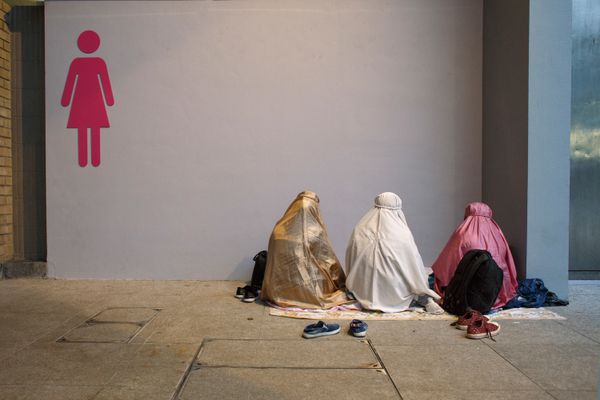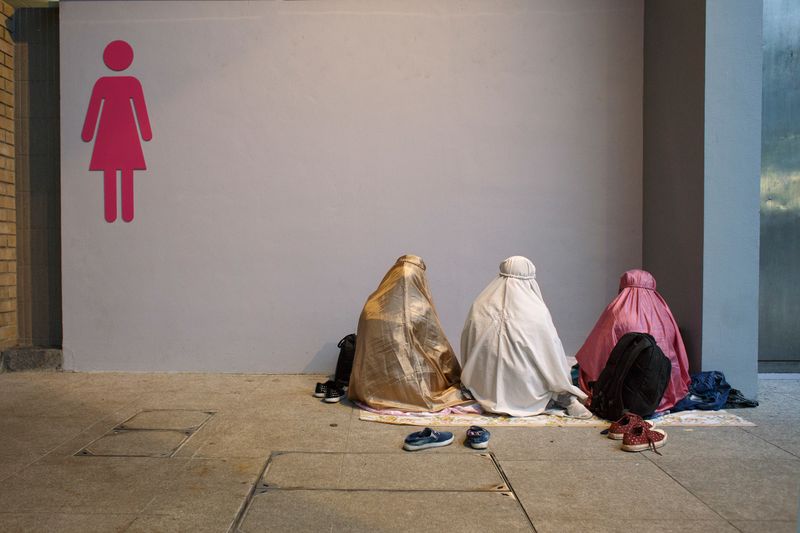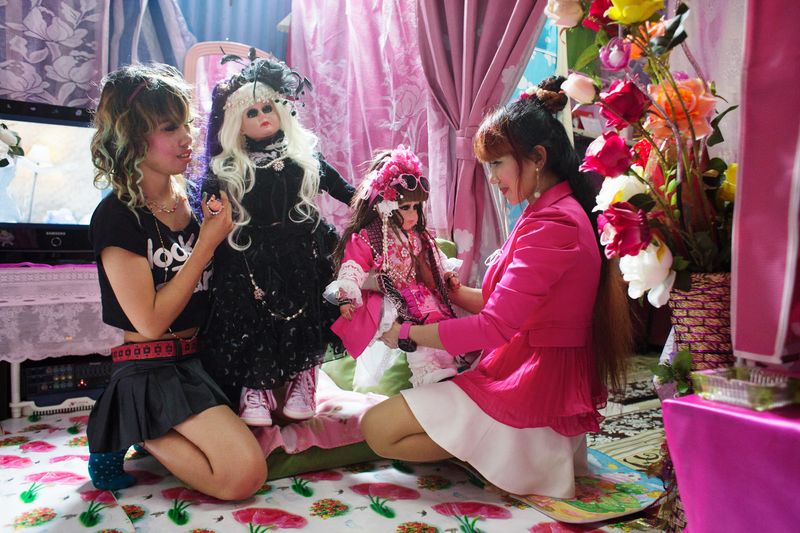Second Class Citizens: The Parallel Lives of Indonesian Domestic Workers in Hong Kong
-
Published24 Apr 2019
-
Author
Your maid wants a day off? Your maid wants a room of her own? Your maid wants her own clothes? Your maid has Body Odour. Your maid has sex? The problems of maid ownership are laid bare in Rebecca Sampson’s wonderful Apples for Sale.
Your maid wants a day off? Your maid wants a room of her own? Your maid wants her own clothes? Your maid has Body Odour. Your maid has sex? The problems of maid ownership are laid bare in Rebecca Sampson’s wonderful Apples for Sale.
Apples for Sale tells the story of Indonesian Maids working in Hong Kong. It’s a book about migration, labour, and regional relationships. It’s about Indonesian maids working in Hong Kong, but for a real horror story you could replace Hong Kong with Jeddah or Kuwait City, and why not switch the Indonesian maids with Filipinas or Sri Lankans. While we’re at it, why not look at London, New York or Paris? It’s a book about the relationship between the rich and entitled and the not so rich and not so entitled.
The cover got me from the start. It’s a soft pixelated image of a maid standing in her pinny, her number stuck across her chest. She smiles madly at the camera, her hands weirdly clasped in front of her. It’s an agency picture, a mug shot to assure potential employers that she is a respectable, compliant type. Open the book and there are more. They are quite painful to look at, fake smiles and linked fingers and thumbs mixed up with the pinnies (one of which reads Apples for Sale) and flattened down hairdos.
Sampson could have mumbled something about identity, mugshots and semantic guilt and these agency images would be a project in itself. But she took a more inquisitive and difficult approach and went to Hong Kong and photographed maids, visited ‘Bad Maids’ Facebook pages and started to unpick some of the personal, political and family pressures that being a domestic worker can connect to.
Those personal pressures are evident in a short page of facts and statistics at the back of the book; one-sixth of domestic workers in Hong Kong are victims of forced labour, 40% don’t have a room of their own. Most are supporting families in Indonesia, and a large percentage of maids are lesbians and come from a country where homosexuality is (due to pressure from recent foreign influences. It wasn’t always this way) increasingly penalised both socially and legally.
The images are divided into chapters. There are days off when maids either return to the conservative muslim dress of their village or take part in some of the strange maid subcultures that seem to form such an important part of maid life; dress-up families where the role of the child is taken by an elaborately dressed doll, elaborately staged shoots of fake weddings and beauty pageants. Photography, Sampson tells us, is vitally important as a means “to convince the maids and their friends and family in Indonesia and Hong Kong just how fulfilled and eventful their lives are.”
There are images of the packed spaces the women have to live in, mattresses crammed next to washing machines, two-metres by one-metre spaces becoming locations for rest and relaxation. And then there are the phone pictures of the maids themselves. Most interesting of these are those where they go about their domestic duties. So there are pictures of domestic labour, of the maids cleaning a toilet, lugging the house turtle, or fake-strangling the household’s pet cat.
Mixed in with that are agency questionnaires and snippets from websites such as how to manage your housemaid from Connie’s Blog. “If you are new to hiring a maid, you may ask the question ‘My maid has finished what I want her to do. Should I let my maid rest?’ If you find yourself having to ask this question, then it means your work schedule for the maid has to be re-done.”
Apples for Sale is a well-researched book then. It opens avenues that could be explored for years and years, and, as such, is an example of an ongoing move towards slow documentary. Sometimes this approach can be the dull flipside to opaque conceptualism; strip away the facts and the mass of detail and there’s nothing there except boredom and the feeling that you’ve been battered by facts. With Apples for Sale, however, the story is fascinating, involving and moving. It’s a book about human relationships, those that exploit, persecute and demean, and those that provide some respite from that exploitation and persecution. It’s also a book about the politics of this world and the relationship between the wealthy and the not-so-wealthy. It’s a book about everywhere.
--------------
Apples for Sale by Rebecca Sampson
Published in September 2018 by Kerber Verlag
Edited by Rebecca Sampson // Text by Rebecca Sampson // Design by Steffen Kørner
Languages: German and English // Hardcover // 144 pages // 92 coloured illustrations // 22 x 26 cm // €35
--------------
Rebecca Sampson is a German-American photographer living in Berlin. Her work has been exhibited in Germany as well as internationally in the United States, India, Austria, and Poland, among others, and she has received several scholarships and awards. She studied under Ute Mahler at the Ostkreuz School of Photography and is currently working on a science and art project with the Technical University in Berlin. Follow her on Instagram.
Colin Pantall is a photographer, writer and lecturer based in Bath, England. His latest book, All Quiet on the Home Front, focuses on family, fatherhood and the landscape. Follow him on Twitter and Instagram.






